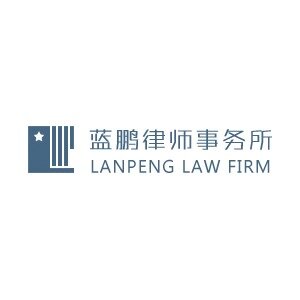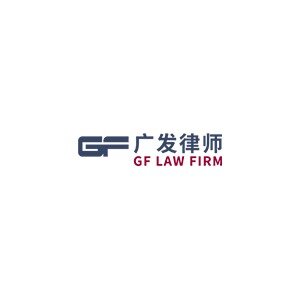Best New Business Formation Lawyers in China
Share your needs with us, get contacted by law firms.
Free. Takes 2 min.
Or refine your search by selecting a city:
List of the best lawyers in China
About New Business Formation Law in China
New business formation in China is governed by a combination of local regulations and national laws designed to control and facilitate the growth of enterprises while maintaining strict oversight. China offers a range of business structures for both domestic and foreign investors, including Wholly Foreign-Owned Enterprises (WFOEs), Joint Ventures (JVs), and Representative Offices. Navigating through these legal frameworks can be challenging due to frequent updates and varying local applications. Understanding the nuances of these regulations is crucial for setting up a compliant and successful business in China.
Why You May Need a Lawyer
Forming a new business in China involves compliance with complex legal processes and regulatory requirements. A lawyer can be vital in these situations:
- Guiding you through entity selection and registration processes.
- Ensuring compliance with national and local laws.
- Drafting and reviewing contracts and agreements.
- Assisting in obtaining necessary licenses and permits.
- Advising on tax implications and structuring.
- Navigating foreign investment laws and restrictions.
- Solving disputes that may arise during business operations.
Local Laws Overview
China's business environment is governed by several key regulations:
- The Company Law: Regulates company incorporation, management, and operations.
- The Foreign Investment Law: Simplifies foreign investment processes and enhances market access.
- The Contract Law: Oversees contract formation and enforcement between businesses.
- Employment Law: Ensures fair labor practices and worker rights, important for human resource management.
- Intellectual Property Laws: Protects innovations and minimizes infringement risks.
Frequently Asked Questions
What types of business structures are available in China?
China offers several business structures, such as Wholly Foreign-Owned Enterprises (WFOEs), Joint Ventures (JVs), and Representative Offices. Each has specific advantages and limitations, dependent on business goals.
How long does it take to set up a business in China?
It typically takes 4-8 weeks to register a company in China, depending on the business structure and location.
Can foreigners own businesses in China?
Yes. Foreigners can own businesses in China through structures like WFOEs and Joint Ventures. Regulations regarding foreign ownership have been relaxed in recent years.
What are some common challenges faced by new businesses in China?
Common challenges include understanding regulatory changes, protection of intellectual property, talent acquisition, and cultural differences in business practices.
Is a Chinese partner required for foreign businesses?
No, it is not required for all types. While Joint Ventures involve local partners, Wholly Foreign-Owned Enterprises do not. A local partner may provide strategic benefits for market entry.
What are the basic tax obligations for businesses in China?
Businesses are subject to Corporate Income Tax (CIT), Value Added Tax (VAT), and may also incur other taxes depending on their specific industry and activities.
How are labor laws managed for foreign-invested enterprises?
Labor laws apply equally to both domestic and foreign-invested enterprises. Key areas include employment contracts, minimum wages, and social insurance.
Are there any industries restricted to foreign investment?
Yes. China maintains a “Negative List” for foreign investment that outlines restricted or prohibited sectors. The list is periodically revised and should be consulted.
Do I need a special license to operate in China?
This depends on the industry. Some sectors require special licenses or permits, such as manufacturing, financial services, and food and beverage industries.
How can one protect intellectual property when forming a business in China?
Businesses should register their intellectual property with Chinese authorities and may consider additional protections, such as confidentiality agreements and patent filings.
Additional Resources
Those forming a business in China might find the following resources helpful:
- Ministry of Commerce of the People's Republic of China (MOFCOM)
- China International Economic and Trade Arbitration Commission (CIETAC)
- Local Chambers of Commerce
- China Foreign Investment Service Center
- Intellectual Property Law Association Great China (IPLA)
Next Steps
If you require legal assistance with new business formation in China, consider the following steps:
- Research and select a qualified legal expert experienced in Chinese business law.
- Schedule consultations to discuss your business plans and seek tailored legal advice.
- Prepare necessary documentation and any preliminary business plans for your legal counsel.
- Understand the timeline and steps required in the formation process as advised by your lawyer.
Taking informed legal steps will facilitate smoother business formation and help prevent potential compliance issues in the future.
Lawzana helps you find the best lawyers and law firms in China through a curated and pre-screened list of qualified legal professionals. Our platform offers rankings and detailed profiles of attorneys and law firms, allowing you to compare based on practice areas, including New Business Formation, experience, and client feedback.
Each profile includes a description of the firm's areas of practice, client reviews, team members and partners, year of establishment, spoken languages, office locations, contact information, social media presence, and any published articles or resources. Most firms on our platform speak English and are experienced in both local and international legal matters.
Get a quote from top-rated law firms in China — quickly, securely, and without unnecessary hassle.
Disclaimer:
The information provided on this page is for general informational purposes only and does not constitute legal advice. While we strive to ensure the accuracy and relevance of the content, legal information may change over time, and interpretations of the law can vary. You should always consult with a qualified legal professional for advice specific to your situation.
We disclaim all liability for actions taken or not taken based on the content of this page. If you believe any information is incorrect or outdated, please contact us, and we will review and update it where appropriate.
Browse new business formation law firms by city in China
Refine your search by selecting a city.











